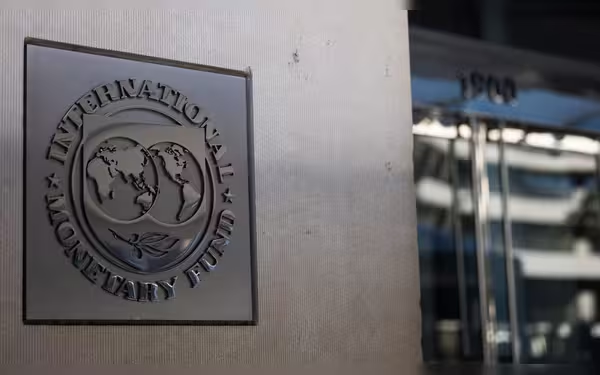Saturday, November 16, 2024 05:42 PM
IMF Declares Global Inflation Battle 'Almost Won'
- Global inflation projected to decline significantly by 2025.
- Major central banks begin cutting interest rates as inflation eases.
- Geopolitical tensions may hinder global trade efficiency.
 Image Credits: arabnewspk
Image Credits: arabnewspkThe IMF reports that the global fight against inflation is 'almost won,' with significant declines expected in the coming years.
The global economy has been on a rollercoaster ride in recent years, especially following the COVID-19 pandemic. As countries scrambled to recover, inflation surged, leaving many wondering how long it would take to regain stability. However, the International Monetary Fund (IMF) recently announced that the global fight against high inflation is 'almost won.' This statement brings a sense of relief to many, as it suggests that the worst may be behind us.
According to the IMF's latest assessment, worldwide inflation is expected to decrease from 6.7 percent last year to 5.8 percent this year, and further down to 4.3 percent by 2025. Wealthy nations are projected to see an even sharper decline, with inflation rates dropping from 4.6 percent last year to 2.6 percent this year, ultimately reaching the target range of 2 percent by 2025. This positive trend is a significant turnaround from the years of soaring prices that followed the pandemic.
One of the key factors contributing to this decline in inflation is the response of major central banks, such as the Federal Reserve and the European Central Bank. After raising interest rates aggressively to combat inflation, these institutions have begun to cut rates as inflation shows signs of easing. Pierre-Olivier Gourinchas, the IMF's chief economist, emphasized that 'the battle against inflation is almost won,' highlighting that many countries are now seeing inflation rates close to their central bank targets.
The rapid recovery of the global economy from the COVID-19 recession initially led to overwhelming demand, causing supply chain disruptions and price hikes. However, as borrowing rates increased and supply chain issues began to resolve, inflation rates started to decline significantly. Surprisingly, the economy, particularly in the United States, continued to grow, with employers maintaining hiring despite the higher costs of borrowing.
In its report, the IMF also upgraded its economic expectations for the United States, predicting a growth rate of 2.8 percent this year, slightly down from 2.9 percent in 2023. However, a slowdown is anticipated next year, with growth expected to decelerate to 2.2 percent as the government seeks to address budget deficits. Meanwhile, China's economy is projected to grow at a slower pace, reflecting challenges in its housing market and consumer confidence.
In Europe, the 20 countries sharing the euro currency are expected to achieve a modest growth rate of 0.8 percent this year, a slight improvement from last year. However, Germany's economy is not expected to grow at all this year, primarily due to struggles in manufacturing and real estate.
Despite the positive outlook for inflation, the IMF cautioned that geopolitical tensions, particularly between the United States and China, could hinder global trade efficiency. Additionally, potential reductions in immigration could lead to labor shortages, further complicating economic recovery.
While the IMF's assessment brings hope for a more stable economic future, it is essential to remain vigilant. The global economy is still navigating through various challenges, and the path to recovery may not be entirely smooth. As inflation rates decline and growth resumes, it is crucial for governments and policymakers to address underlying issues to ensure sustainable economic health for all nations.













